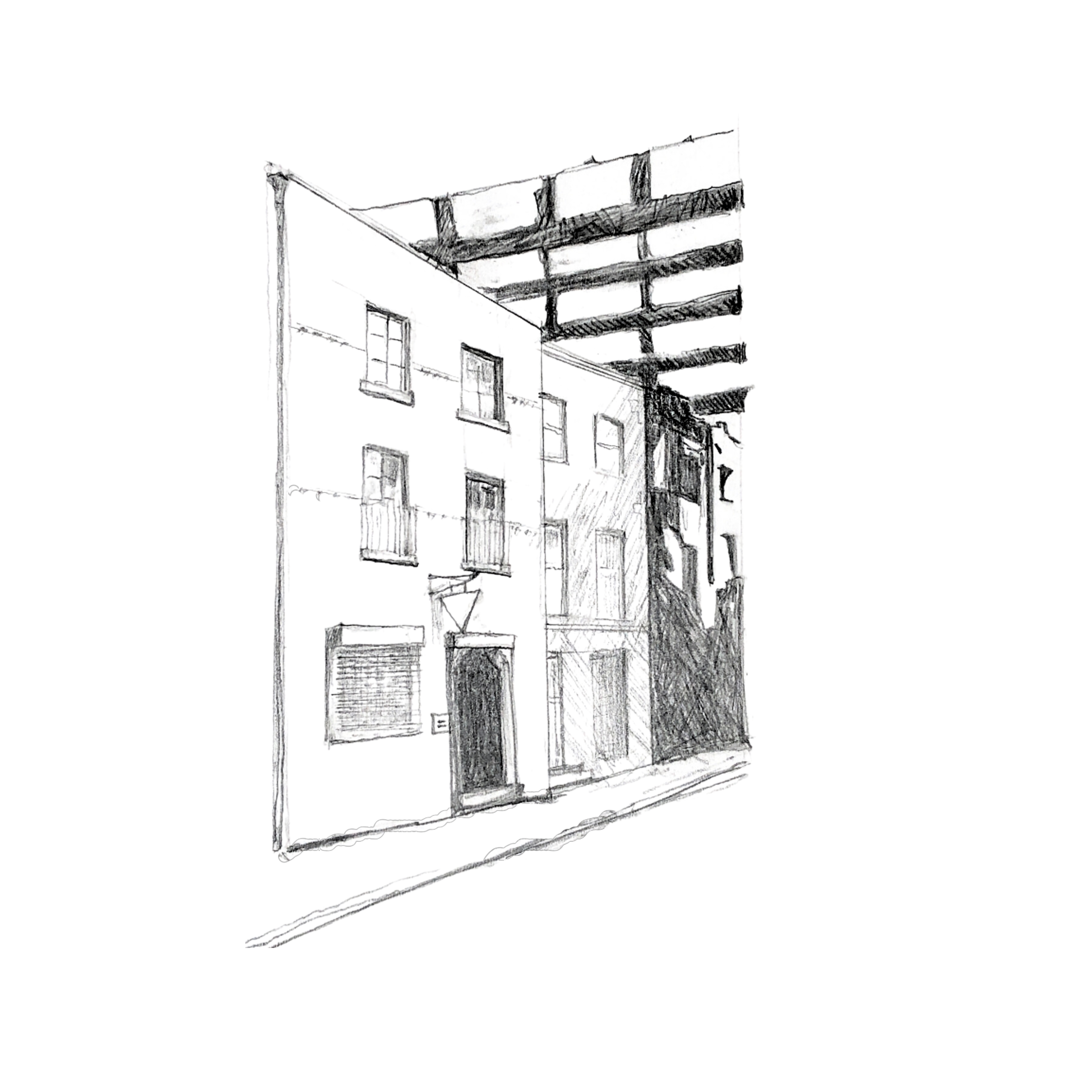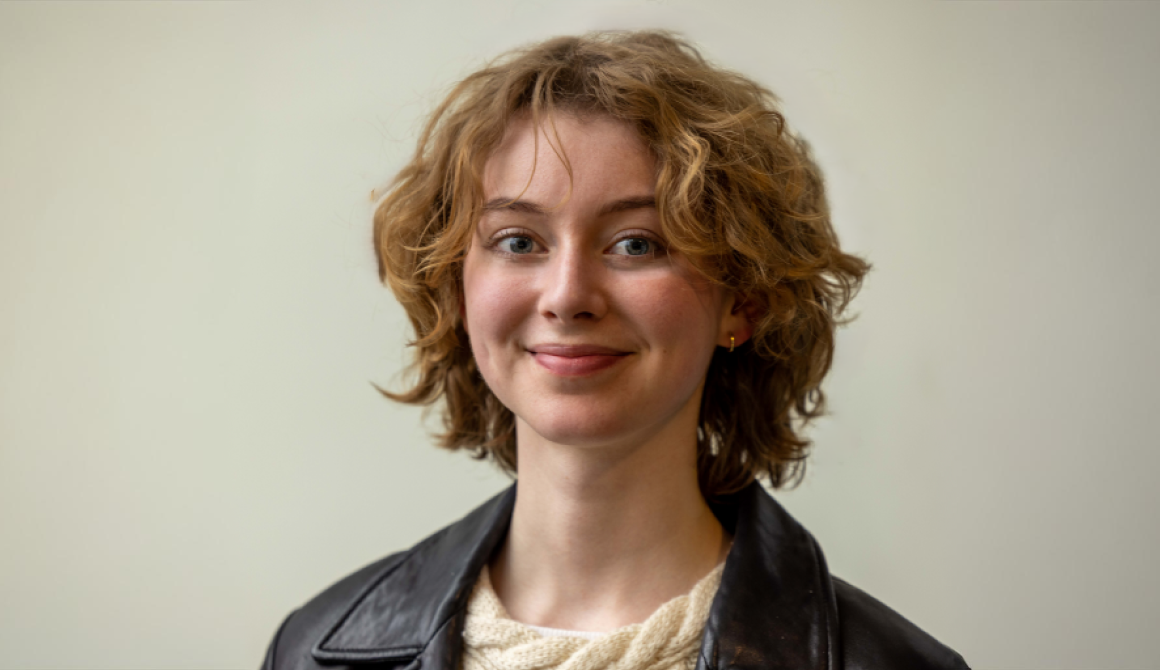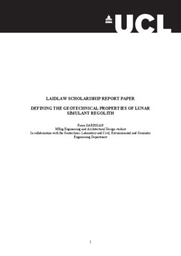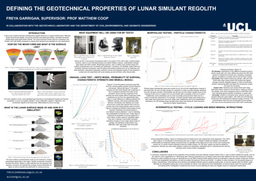Scholar Spotlight - Méabh Scahill

Discover more Scholar Spotlights.
Méabh Scahill, a Laidlaw Scholar at Trinity College Dublin, on Queer Space, Visibility, and the Built Environment.
Research Title:
Queer Space, Visibility, and the Built Environment: A Study of the Hirschfeld Centre and the Gay Scene in 1980s Dublin
The subject of my research was the Hirschfeld Centre, Ireland’s first full-time, dedicated LGBTQ+ community Centre 1979- 1988. Taking a series of previously unstudied photographs as its primary source, my research focused on investigating the interrelationship between the consolidation and increasing visibility of the Irish LGBTQ+ community and the Hirschfeld Centre as a space in early 1980s Dublin. The Hirschfeld Centre’s significance for the local and nationwide Irish liberation movement couldn’t be overstated in my research. Still, I also sought to position the Centre’s development within the wider global context of LGBTQ+ spaces in the West by engaging with debates on the nature and definition of queer space in the built environment.
In a way, my research was architectural history without a tangible architectural source. The Hirschfeld Centre was damaged by fire and closed in 1988. The building that once housed it is now a short-term let apartment and a vintage clothes shop. But queer spaces are often short-lived, and arguably by their very nature ephemeral. Queer spaces are made ‘queer’ not by form or design but through ‘use’ by queer communities. My central source for this research was as series of photographs of people involved in the queer scene of 1980s Dublin, taken in or around the Hirschfeld Centre by photographer Don Wood. The role of queer history in community making and vice versa was central to this project. I would not have had access to the sources I used for this project without the generosity and support of older members of the LGBTQ+ community in Dublin, and was endlessly supported throughout the process by my peers, and the LGBT+ staff network at Trinity College Dublin.
 Sketch of the Hirschfeld Centre.
Sketch of the Hirschfeld Centre. Where did your passion for this research originate?
The passion for this research was born out of a desire to connect with local queer community. I jumped on the opportunity to explore an area of history, and specifically local history, that I hadn’t had the opportunity to explore in my university assignments. It also seems impossible now in hindsight to separate the research I conducted last summer from the intertwined personal growth. The personal and the scholarly intermingled. One of my standout memories from my interview for the Laidlaw Programme was being good-naturedly challenged as to whether I was the ‘right person’ to conduct this research. Thankfully, I discovered that rather than a hindrance, the positionality of my own identity was a strength. It enabled me to make genuine connections with other members of the LGBTQ+ community here in Dublin, which subsequently lent me access to sources and knowledge I otherwise wouldn’t have.
What is the most memorable moment from your Laidlaw scholarship experience so far?
One of the most memorable moments from my Laidlaw journey has to be the total coincidence of running into one of the key founding members of the Hirschfeld Centre, the late Edmund Lynch, in Dublin’s Outhouse Café during my summer 1 research. That short, humorous first encounter led to a wonderful chat over tea, during which he generously shared the transcripts from the oral history project he had spent the last ten years compiling. Those transcripts turned out to be an invaluable source that seriously enriched my research. Edmund Lynch’s passing in October, just a few short months after our meeting, reinforced how lucky a chance encounter it was.
What is the biggest challenge you came across in your research and leadership journeys so far, and what did you learn from it?
My Leadership in Action experience was the longest period of time I have ever been away from home. I completed my L.i.A in Miami, Florida, with renowned urban planning firm DPZ CoDesign. Thoroughly out of my comfort zone in both environment and work, I feel like I ended up doing six months worth of personal development in six weeks. The work I did researching and presenting on adaptive strategies for building and planning in light of climate change, while challenging, ended up being incredibly rewarding. My biggest takeaway from the experience is the conviction that my strength lies in the interpersonal connections I am able to make.
What does it mean for you to be a Laidlaw Scholar?
Being a Laidlaw Scholar has granted me opportunities I never could have even considered. It has given me the space to engage with research subjects I am truly passionate about, and enabled me to form connections with some truly amazing people. In coming towards the end of my Laidlaw journey and reflecting back, Connection is the thread that seems to interconnect all my experiences. My research enabled me to form connections with LGBTQ+ community on campus and the wider city. I found myself in an unfamiliar environment during my Leadership in Action, but found strength in my ability to form interpersonal connections. And perhaps some of the most significant connections I have formed have been with my fellow scholars. If I am taking one thing away from my journey with the Laidlaw program, it is an affirmation that possessing the ability to form and facilitate genuine connection, is the type of leadership I hope to embody and foster.
This year’s Laidlaw Conference Theme was “Curiosity". What does Curiosity mean to you?
I have found Curiosity is a way to make genuine connection with others. Across aspects of my life, and in experiences of both research and leadership, I have found people respond to authenticity. By approaching a situation with curiosity, I am offering the opportunity for others to engage and form a connection. To me, Curiosity means being ready and open to reach, if not always on common ground, then at least understanding in any interaction.
Curiosity has also served as a way through which I frame and accept the limitations of any opportunity or relationship - sometimes despite best intentions or hopes, a situation won’t go to plan, but I can only take responsible for my own actions. Thinking about a conscious form of curiosity has helped me stay sure of my own convictions despite disappointments.
Quick-fire Questions
📺 Currently binging:
<img src="https://images.zapnito.com/uploads/qrS424yzRyuNpDR4GGpe_gilmore_girls_season_1_box_set.jpg" alt="" width="150" height="300" "="" style="display: block; margin-left: auto; margin-right: auto;">
📚 My top book recommendation:
Slant by Katherine O’Donnell
<img src="https://images.zapnito.com/uploads/i6KBaUsuTZigVbGc6tTH_91kfcsvofhl.jpg" alt="" width="150" height="300" "="" style="display: block; margin-left: auto; margin-right: auto;">
🎶 My anthem:
Obvious Child by Paul Simon
🎙️Podcast obsession:
The Blindboy Podcast by Blindboyboatclub
<img src="https://images.zapnito.com/uploads/WyFIOz5ER8NoWYbVQEkg_show-cover.jpg" alt="" width="200" height="200" "="" style="display: block; margin-left: auto; margin-right: auto;">
Something that made me feel joy recently 🌈:
Seeing my friends and family again after getting home from L.i.A.!
Visit the Outhouse LBGTQ+ Centre!
Around the same time I started my research into the history of the Hirschfeld Centre, I started volunteering with Outhouse LGBTQ+ Centre. Outhouse is Dublin’s modern day queer community centre. Its main office, library, and café are located on Capel Street in the most amazing historic Georgian building. I recommend it to everyone I talk to in Dublin or anyone visiting; the café is great value. It’s the perfect spot for a cup of tea and to read a book by yourself or to chat to new friends.
If you want to learn more about Méabh's work, explore Méabh's research here and follow them on LinkedIn. Méabh is a Laidlaw Undergraduate Leadership and Research Scholar at @Trinity College Dublin. Become a Laidlaw Scholar to conduct a research project of your choice, develop your leadership skills, and join a global community of changemakers from world-leading universities.
Find out more about the Laidlaw Scholars Undergraduate Leadership and Research Programme.
🔦 Discover more Scholar Spotlights:
⚡️ Anuj (AJ) Manchanda, a Laidlaw Scholar at the University of Toronto, delves into how Environmental CSR initiatives shape consumer choices.
⚡️ Sebastian Glasper, a Laidlaw Scholar at the University of Leeds, explores social media’s role in mitigating loneliness among older adults.
⚡️ Sophia Waseem Khan, a Laidlaw Scholar at Durham University, champions sustainable agriculture through innovative ion recovery.






Please sign in
If you are a registered user on Laidlaw Scholars Network, please sign in